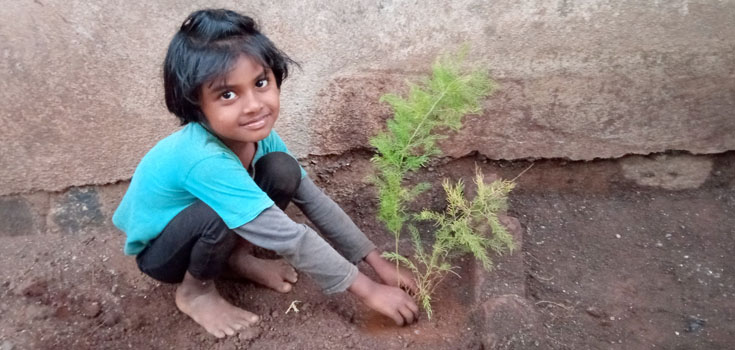The 5th of June is World Environment Day 2023!
This year the World Environment Day theme is “#BeatPlasticPollution”. The 2023 World Environment Day campaign #BeatPlasticPollution calls for people’s actions on plastic pollution matters. (Read More)
We can’t stop breathing, we can’t stop eating, we can’t stop drinking. And all these that make life comes from nature. Almost 7.5 Billion in the world depend on nature and with the current average population increase- estimated at 81 million people per year, the natural resources face challenges as never before. We have been abusing nature which has linked to the extinction of many species of land and water destroying the overall ecosystems and habitats without thinking about the consequences. World Environment Day 2023 will push governments, businesses, industries, communities, and individuals to come together to tackle plastic pollution.
The environment is important for all of us – we live in it and we need it to be healthy!
On the occasion of World Environment Day, we want to give all the hard-working NGOs out there tips on applications in this sector, so that you can continue your great work.
Stay up to date
The environmental sector is a sector where things develop quickly. It is very important that you stay on your toes and know all the current developments. This can be new technologies, new approaches, or just new trends or funding opportunities. You do not want to be the NGO that proposed an outdated methodology in a grant application – be sure you know what is happening in your field!
Be innovative and creative
Being innovative is something that donors list on their application guidelines many times – it does not mean that you have to invent the wheel again every time you write a proposal. Something you can try though is to think differently. Be creative and try to think of new ways to approach a problem. Particularly in the environmental sector, many things have been tried and did not work in the past – do not repeat others’ mistakes. When proposing a new approach, make sure that you have some solid points to back it up – innovation still needs to come with some proof that it might work.
Particularly in the environmental sector, it is important to develop partnerships with other NGOs, Government agencies, or international organizations. A good network can be the key to success. Many times you will need expertise that you might not have within your organization to implement a project. Also, environmental issues are cross-cutting themes that touch on many different sectors – do not pretend to be an expert in all of them. Projects in the environmental sector can have a strong technical component – make sure you have experts on board. Developing partnerships shows that you know what you are doing and are interested in doing everything possible to make the project a success.
Never forget the big picture
When working in the environmental sector, you should never forget the bigger picture. Even if you work in a very specific area, you should try to look at your project and your work within a bigger framework. Many factors have to be taken into account to assure the sustainability of the project. What is the long-term effect of your proposed project? Did you think about the wider community? Did you include all stakeholders in the planning? Experiences from the past have shown that it is very important to look at a project or program holistically, particularly when working in the environmental sector.
Base your assumptions on science
It is always important to base your assumptions on facts. They are the base for all of your planning and this base needs to be solid. Particularly in the environmental sector, it is important to make sure your assumptions are based on science. There are many studies you can use to justify your approach or your methodology. Use them to show that you know exactly what you are doing and that you put a lot of thought into your approach. When deciding on a proposal in the environmental sector, many donors make sure to have scientists on their committee, so you need to use facts to back up your claims to convince them.
Also read 7 Tips for Proposals on Climate Change

